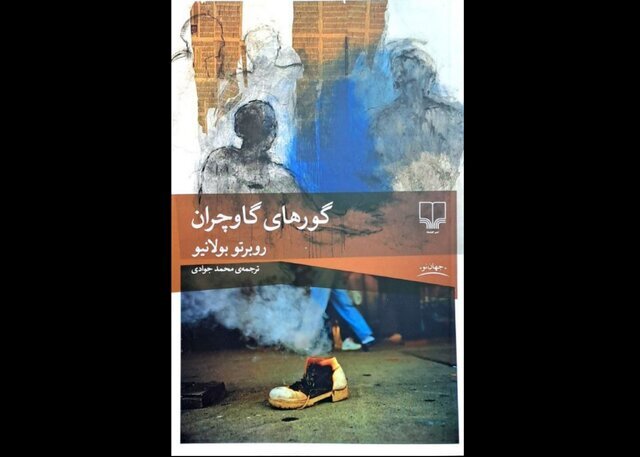Roberto Bolaño’s “Cowboy Graves” published in Persian

TEHRAN-The Persian translation of the book “Cowboy Graves” written by the Chilean novelist and short story writer Roberto Bolaño has hit the Iranian bookstores.
Mohamad Javadi has translated the book that has been published by Cheshmeh Publications in Tehran, ISNA reported.
Originally published as “Cowboy Graves: Three Novellas,” it is a collection of three short works by Bolaño. It was posthumously published by Alfaguara in September 2017. The book collects three short pieces, “Cowboy Graves,” “French Comedy of Horrors,” and “Fatherland”.
Bolaño's boundless imagination and seemingly inexhaustible gift for shaping the chaos of his reality into enduring fiction is unmistakable in these three exhilarating novellas. In “Cowboy Graves,” Arturo Belano--Bolaño's alter ego--returns to Chile after the coup to fight with his comrades for socialism. “French Comedy of Horrors,” takes the reader to French Guiana on the night after an eclipse where a 17-year-old answers a pay phone and finds himself recruited into the Clandestine Surrealist Group, a secret society of artists based in the sewers of Paris. And in “Fatherland,” a young poet reckons with the fascist overthrow of his country, as the woman he is obsessed with disappears in the ensuing violence and a Third Reich fighter plane mysteriously writes her poetry in the sky overhead.
“Cowboy Graves” is an unexpected treasure from the vault of a master of contemporary fiction. These three fiercely original tales bear the signatures of Bolaño's extraordinary body of work, echoing the strange characters and uncanny scenes of his great triumphs while deepening our understanding of his profound gifts.
For most of his early adulthood, Bolaño was a vagabond, living at one time or another in Chile, Mexico, El Salvador, France, and Spain. Bolaño moved to Europe in 1977 and finally made his way to Spain, where he married and settled on the Mediterranean coast near Barcelona, working as a dishwasher, a campground custodian, bellhop, and garbage collector — working during the day and writing at night.
He continued with his poetry, before shifting to fiction in his early forties. In an interview, Bolaño stated that he made this decision because he felt responsible for the future financial well-being of his family, which he knew he could never secure from the earnings of a poet.
Regarding his native country Chile, which he visited just once after going into voluntary exile, Bolaño had conflicted feelings. He was notorious in Chile for his fierce attacks on Isabel Allende and other members of the literary establishment. In 2003, after a long period of declining health, Bolaño passed away.
Although deep down he always felt like a poet, his reputation ultimately rests on his novels, novellas, and short story collections. Although Bolaño espoused the lifestyle of a bohemian poet and literary enfant terrible for all his adult life, he only began to produce substantial works of fiction in the 1990s. He almost immediately became a highly regarded figure in Spanish and Latin American letters.
SS/
Leave a Comment